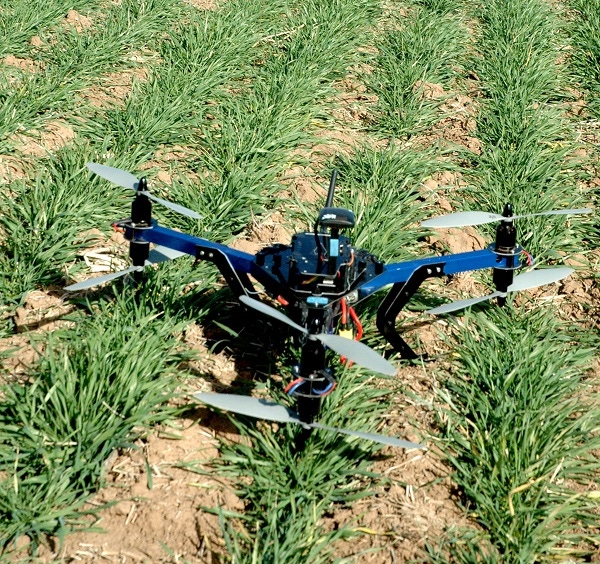December 4, 2013

Dr. Charlie Rush hopes to use a unique method – helicopter drone – to track disease progression across wheat fields and eventually help producers make better irrigation decisions.
Rush, a Texas A&M AgriLife Research plant pathologist in Amarillo, has enlisted the help of Ian Johnson, a Montana State University-Bozeman graduate student who is using his work in the university’s Science and Natural History Filmmaking Program to help scientists conduct research.
Approximately 1.1 million acres of wheat in the High Plains are irrigated, Rush said, making wheat the second-largest user of irrigation water from the Ogallala Aquifer. In this same region, mite-vectored virus diseases are the predominant pathogenic constraint to sustainable wheat production each year.
If you are enjoying reading this article, please check out Southwest Farm Press Daily and receive the latest news right to your inbox.
The viruses causing these diseases are transmitted by the wheat curl mite, he said. Infected wheat plants not only have reduced grain and forage yields, but also greatly reduced root weight and water-use efficiency. Therefore, fertilizer and groundwater applied as irrigation to diseased wheat is largely wasted.
Rush’s team is using the helicopter to take remote images of a field study where they are trying to develop an economic threshold for irrigation of wheat infected with wheat streak and other mite-vectored diseases.
Also of interest from Southwest Farm Press:
Managing wheat disease is goal of Kansas State University team
Mite-vectored disease management is goal of AgriLife Research-led team
AgriLife Research to determine when wheat diseases limit input effecti…
You May Also Like




